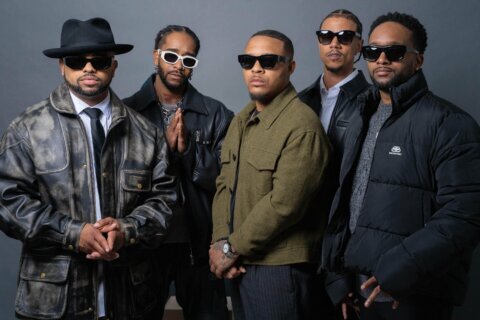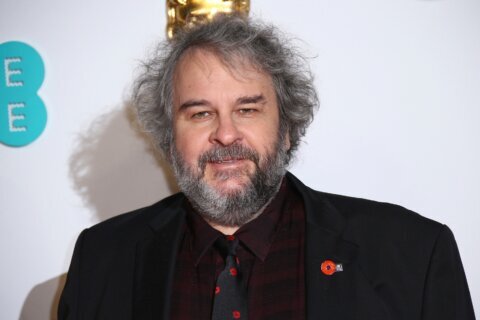WASHINGTON — The late Dick Gregory pioneered stand-up comedy with biting satire. So what would inspire a man to walk away from millions of dollars to pursue a social cause?
Find out in the dramatic play “Turn Me Loose” at Arena Stage from Sept. 6 through Oct. 14.
“Richard Pryor called Dick Gregory the master,” actor Edwin Lee Gibson told WTOP. “The way jokes are constructed … you look at George Carlin, you have a whole line of people. At that time, Lenny Bruce and Dick Gregory were the cats doing something different.”
Produced by John Legend, written by Gretchen Law and directed by John Gould Rubin, the show chronicles Gregory’s life and career, intercutting his wise later years with flashbacks of his younger days as a stand-up comedian and civil rights activist in the 1960s and 1970s.
“It’s snippets,” Gibson said. “It goes back and forth and gives you an idea who he was as a comic and just that trajectory. In the now, he talks about his life then, then we go back and we hear how his comedy was, how it morphed and then the choice to first use it as a mechanism to support the Civil Rights Movement, but then realizing that he had to go full throttle into the Civil Rights Movement and leave comedy behind and leave millions of dollars with it.”
That journey began performing for black audiences at segregated nightclubs until 1961, when Gregory became the first black comedian to cross over to white audiences on TV and albums.
“When you think about segregation at clubs then, he was performing for people who really didn’t want to see him there,” Gibson said. “He had no fear about jumping into the belly of the beast and began to really change things from the inside. … He came up in St. Louis, then Hugh Hefner saw him and booked him at the Playboy club in Chicago. Then from that one night, it became a six-week stint, and that became a Time magazine article and heightened visibility.”
Ironically, his meteoric success brought him to venues that outpriced his original following.
“Brown-skinned folks liked him when he wasn’t [famous] and pushed him to places where they couldn’t afford to come see him play,” Gibson said. “But he never forgot those folks.”
Soon, he began championing the Civil Rights Movement and protesting the Vietnam War.
“He began to go back and do charity speeches for organizations like the NAACP [and] found he got deeper and deeper and had to make a choice,” Gibson said. “‘I can’t unsee it, I can’t just do comedy then leave.’ … Medgar Evers kept asking him to come back and he began to become this activist in a more direct way than he already had been without even knowing it.”
The transition was natural — Gregory had always been spitting satire in his routines.
“He was already doing that type of act,” Gibson said. “It’s funny that the movement and this guy with this humor and this act would find each other. … He left the comedy behind and said, ‘I can’t do both of these things. I can use it as the satire that it’s always been, as the commentary that it’s always been, but I’ve got to go full throttle into this activism.'”
The legacy of responsibility through comedy lives on today in titans like Dave Chappelle.
“Silver Spring’s own Dave Chappelle actually grew up knowing the Gregorys — that’s a fun tidbit,” Gibson said. “You see a cat like that who feels a responsibility, all the money he walked away from, that was some Dick Gregory type stuff right there, because cats don’t do that.”
Of course, Gregory ultimately returned to stand-up comedy later in life until his death in 2017.
“To be able to come back and be revered the way he is, even in his passing, his transition, it’s just amazing,” Gibson said. “He’s topical now and he was topical then, which is really cool. To be able to find that stuff each night, to be right in that moment and say, ‘Oh, wow.’ I have to be careful not to get caught listening to the show while I’m doing it! … You get lost in it.”
Find more details on the Arena Stage website. Hear our full chat with Edwin Lee Gibson below:








